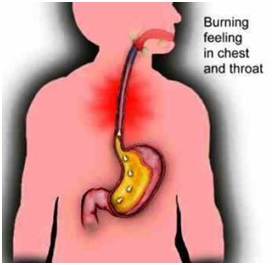
A widely common patient complaint is Acid reflux disease, medically known as Gastroesophageal reflux disease (GERD). Acid reflux manifests itself with symptoms like dyspepsia (indigestion), heartburn, and regurgitation. A patient experiences a sensation of burning, pain, and fullness in the upper and central parts of the chest, often after intake of meals.
Acid reflux symptoms mostly occur:
After taking a heavy mealWhen lying down, especially on your back
When bending over or lifting an object
Affected persons who have frequent acid reflux symptoms generally experience them at night. Night-time GERD tends to produce the most pain. Pertinently though, the level of pain does not necessarily tell us about the degree of damage to your esophagus. It is only through blood tests combined with endoscopic investigations that your gastroenterologist will be able to correctly give you the cause and treatment for your specific Acid reflux symptoms.
Diagnosis & treatment
Even though acid reflux is a widespread and often not-so-serious problem, but it is advisable not to ignore the acid reflux symptoms entirely. More often, specific lifestyle changes and taking over-the- counter antacids are usually what you need to get relief from acid reflux symptoms.
However, if it is persistent and tends to get severe, a correct diagnosis can be made by doing certain advised Blood investigations, Endoscopy, ultrasound abdomen, X-ray, and CT scan abdomen at the Care Hospital in Bathinda. Many pregnant women get heartburn conditions during pregnancy. This often is due to increased hormones and abdominal pressure from a growing fetus. In almost all cases, heartburn feeling improves or completely vanishes post-delivery.
